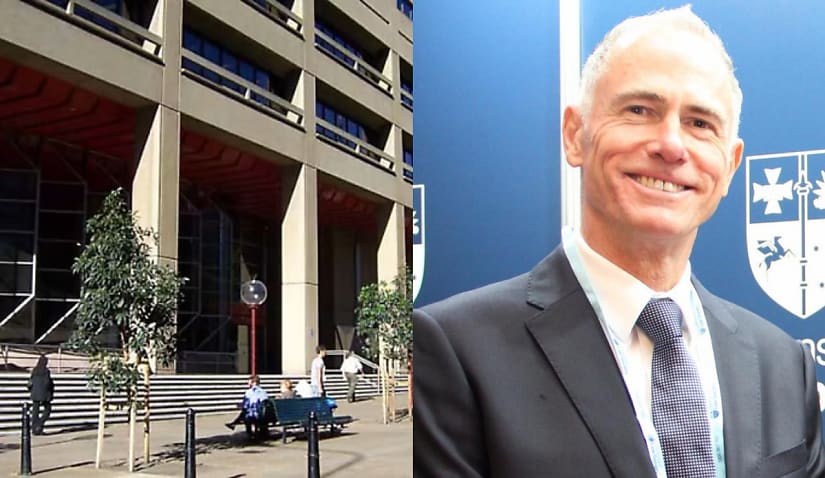A principal of a boutique law firm on the Gold Coast, who was found to have “exorbitantly” overcharged an elderly client, failed to overturn an order that he pay back the client’s relative over $250,000.

Beau Timothy John Hartnett, the principal of Hartnett Lawyers, has lost an appeal to have the $251,255.53 returned to him following a finding last September by Justice Elisabeth Peden that he had charged a client $288,601 to enforce a $30,000 mortgage.
Over the following years, Mr Hartnett and Mr Bell clashed in correspondence and in court over whether it should be paid.
In one example of overcharging provided by Justice Peden in her judgment, Mr Hartnett billed Gwendoline Deakin-Bell $36,201 to file and serve a statement of claim for possession of the mortgaged property – an amount that was approximately 27 times greater than the $1,321 allowed under a Legal Profession Regulation 2005 schedule.
Mr Hartnett also charged approximately $44,000 for “care and consideration” in a matter that was not “complex or difficult” and had been undefended. Mr Hartnett told Justice Peden at the time that the extra 25 per cent was payable according to his costs agreement.
In March this year, Mr Hartnett appealed Justice Peden’s orders and called into question whether the court had jurisdiction to order that he make the payment. If it did, Mr Hartnett said Justice Peden erred in exercising her discretion to make such an order.
Mr Hartnett also questioned whether Justice Peden had correctly quantified the amount that was to be ordered.
In a judgment delivered this month, Chief Justice Andrew Bell, Justice Christine Adamson and acting Justice John Griffiths found the court’s jurisdiction “was not displaced by the rules of the court” and Justice Peden’s discretion “did not miscarry”.
“The highest standards of integrity are expected of members of the legal profession, and exorbitant charging debases the reputation of the legal profession as well as subjecting clients or others involved in litigation to unwarranted costs,” the Court of Appeal found.
They also found Mr Hartnett was not denied procedural fairness and pointed out that his attempt to have two related proceedings moved to the Court of Appeal was “inconsistent with his claim to have been denied procedural fairness”.
History of $250k payment fraught with ‘deflecting and delaying’
In December 2014, Mr Hartnett commenced proceedings on Ms Deakin-Bell’s behalf, seeking possession of a property left to Mr Bell – which had been in the estate of his deceased mother, Mabel Deakin-Bell (Mabel) – and the mortgage. The proceedings were largely undefended.
Following the sale, Ms Deakin-Bell signed a document authorising the payment of $288,601.03 to Mr Hartnett’s firm.
After Mr Bell obtained probate of Mabel’s will in November 2016, he sought copies of invoices and amounts charged by Mr Hartnett.
When this was unsuccessful, Mr Bell made a number of complaints to the Legal Services Commissioner of Queensland (LSCQ) and was met with a threat by Mr Hartnett – apparently “ostensibly” on behalf of Ms Deakin-Bell – to seek revocation of Mr Bell’s grant of probate.
In July 2017, when Mr Bell still had not received the invoices, he complained to the LSCQ. Mr Hartnett again refused.
Justice Peden observed a letter Mr Hartnett sent to the LSCQ had been “astonishing” because he indicated he would need more than the 28 days to provide further information.
Justice Peden added that by explaining he would need to seek instructions from Ms Deakin-Bell– on what was largely a personal matter – it “appears another tactic of deflecting and delaying”.
Eventually, in 2018, Mr Bell sought a costs assessment.
Three months later – and following a number of other requests for extension – Mr Hartnett again asked the court to give him more time because he “now formally received instructions”.
Justice Peden noted that as Mr Hartnett had been charged Ms Deakin-Bell for reading each piece of correspondence from the costs assessor up to that point, “the only basis on which such a charge could be justified was if Mr Hartnett already had instructions to act”.
Despite a costs assessment being made in Mr Bell’s favour, Mr Hartnett still refused to comply until a court made the order.
Costs assessment and uplift fee in issue
The only evidence of a costs agreement appeared to be an unsigned copy that gave an estimate of between $3,900 and $6,400.
In the agreement, Mr Hartnett also included a 25 per cent “uplift fee” clause because his fees would only become payable either upon the sale of the property or if he ceased acting for Ms Deakin-Bell.
In September 2016, pending a probate of Mabel’s will, Mr Hartnett wrote to the NSW Trustee and Guardian to advise them an estimate of costs was “in the range of $222,000–240,000”.
He revised this later that month because he did not include the uplift and goods and services tax (GST), making it instead between $302,500 and $330,000.
The Supreme Court found it was arguable the costs agreement was not “conditional” at all because the payment was not dependent on a successful income and was instead “deferred” until Ms Deakin-Bell had recovered money from the mortgage.
If she had failed to make any recovery, Hartnett Lawyers would have ceased acting for her, and the fee would then become payable.
“If that conclusion is correct, no ‘uplift fee’ was in fact chargeable, as the costs were not ‘conditional’ in the relevant sense,” the court found.
The court added that even if the costs agreement was found to be conditional, there was “no evidence” Hartnett Lawyers had satisfied the uplift fee requirement under the Legal Profession Act, which requires “either an estimate of the uplift fee or a range of estimates and the major variables that would affect the final calculation”.
Hartnett Lawyers had also “failed to disclose in writing” why the uplift fee is warranted, which was required as there was “no evidence of a costs agreement which Gwendoline had actually signed”.
